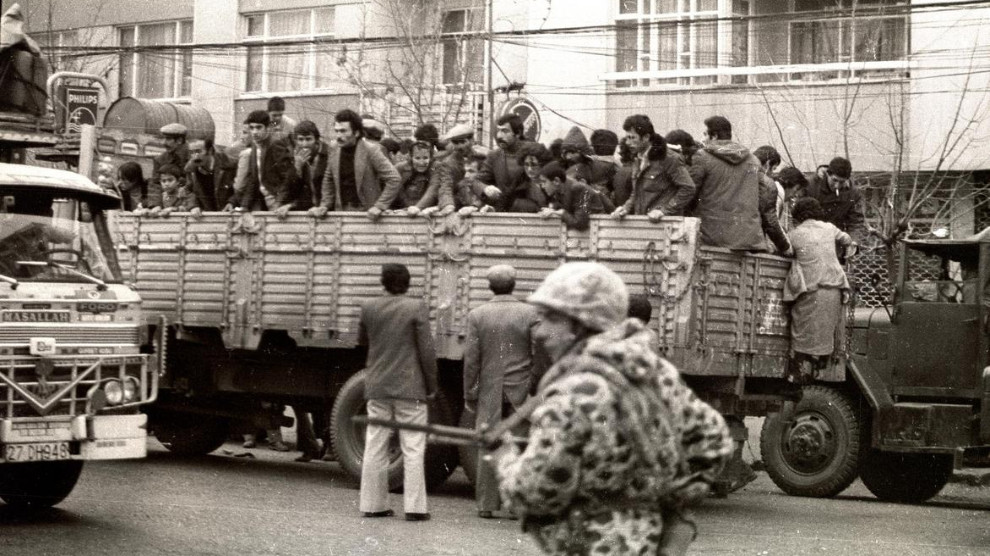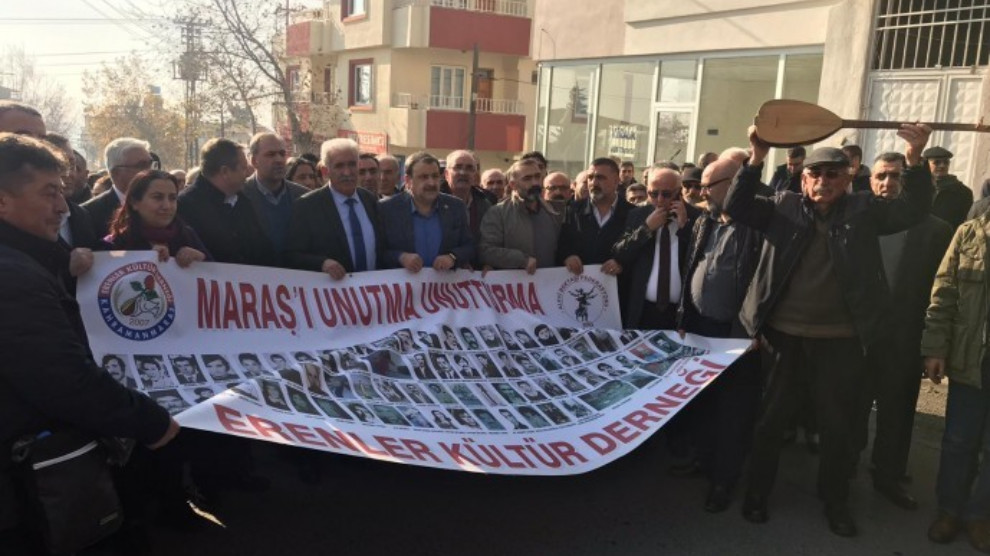Victims of the Maraş massacre commemorated
In Maraş the victims of the anti-Alevi massacre of 41 years ago have been commemorated. According to official figures, 111 people died in the attacks, according to unofficial figures up to 1,000 people.
In Maraş the victims of the anti-Alevi massacre of 41 years ago have been commemorated. According to official figures, 111 people died in the attacks, according to unofficial figures up to 1,000 people.

In December 1978 a massacre of Turkish right-wing paramilitaries against Alevis took place in the city Maraş (Kurdish: Gurgum): the massacre of Maraş. For days a fascist mob raged with slogans like "Whoever kills an Alevi goes to paradise". Houses and shops of Alevis and leftists, which had previously been marked with a cross, were stormed, shops destroyed and women raped. The state did not intervene for days and instead watched. According to official figures, 111 people died in the attacks, according to unofficial figures up to 1,000 people. A memorial site in the city, now almost exclusively inhabited by Sunni Turks, is still missing today.
41 years have passed since the pogrom. Today the victims were commemorated in the city. Hundreds of people gathered in the district of Yörükselim and marched with a banner with photos of the victims to the Erenler Cemevi (Alevi place of worship). Representatives of various Alevi organisations from Turkey and Europe as well as members of the HDP and the CHP took part in the commemoration ceremony.

In the name of the organizers Müslüm Ibili, chairman of the Erenler cultural association, explained in a speech that the pogrom of Maraş did not only affect the Alevi community but that it concerned "all people with a conscience".
HDP member of parliament Kemal Peköz called on the government to face the pogrom: "We keep bringing up this and other massacres in and outside parliament. We are told not to open this wound again but this wound has never stopped bleeding. It has bled since Koçgiri, since Ağrı and Zilan, it still bleeds in Sivas, Gazi and Roboski. And with the current policies, new wounds are being opened. We don't want to open old wounds, we want that the government faces them and that no new wounds are opened."
After the speeches candles were lit and carnations were laid down. The commemoration event ended with a Semah, the Alevi prayer dance.